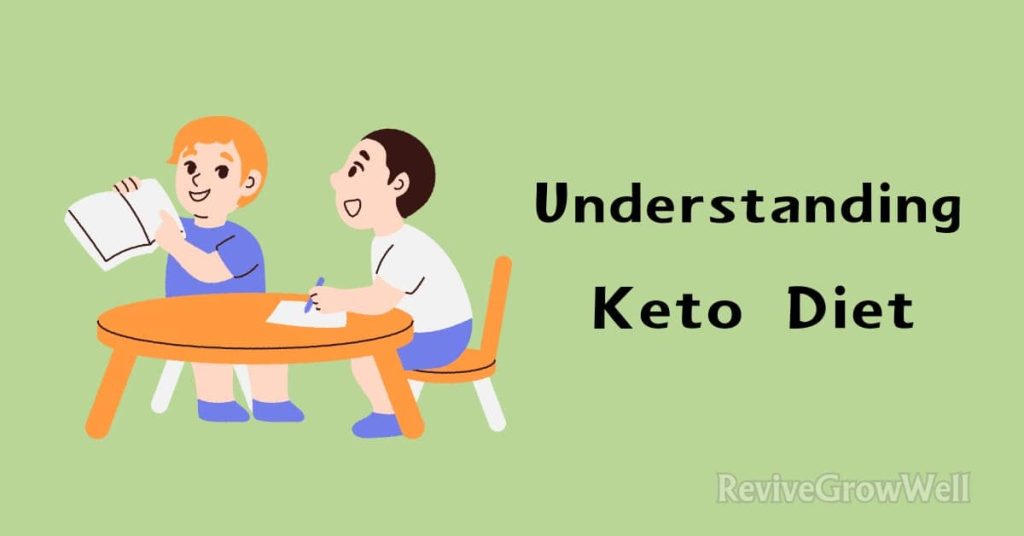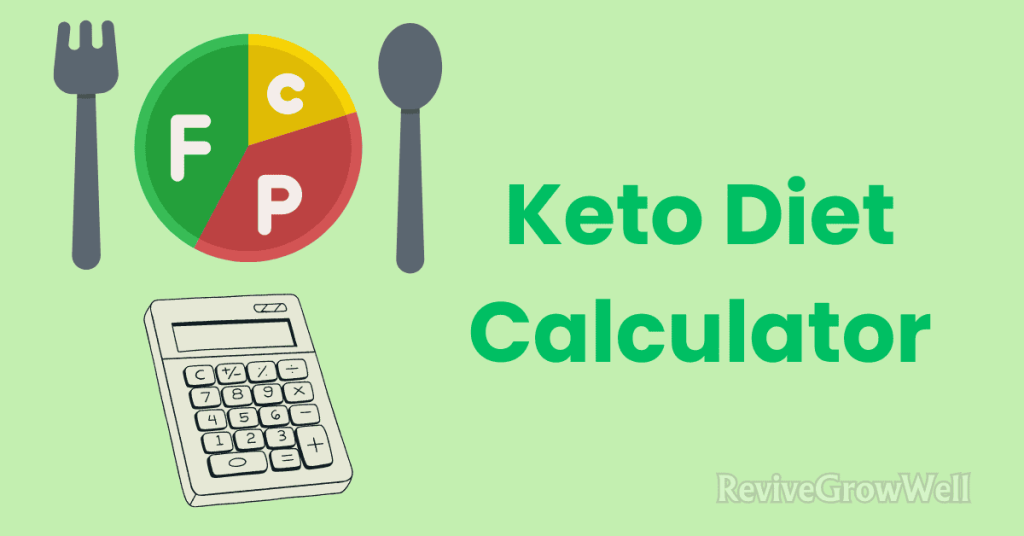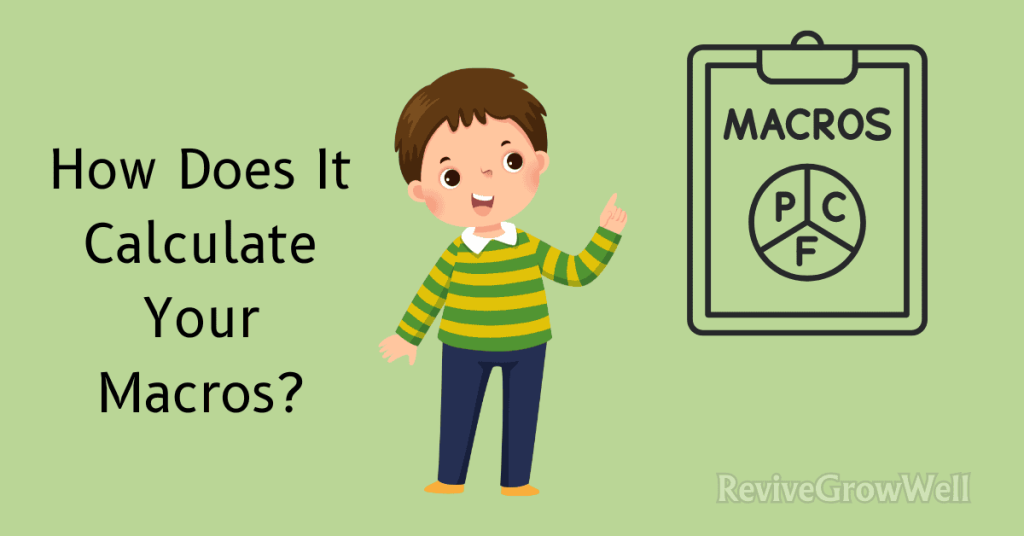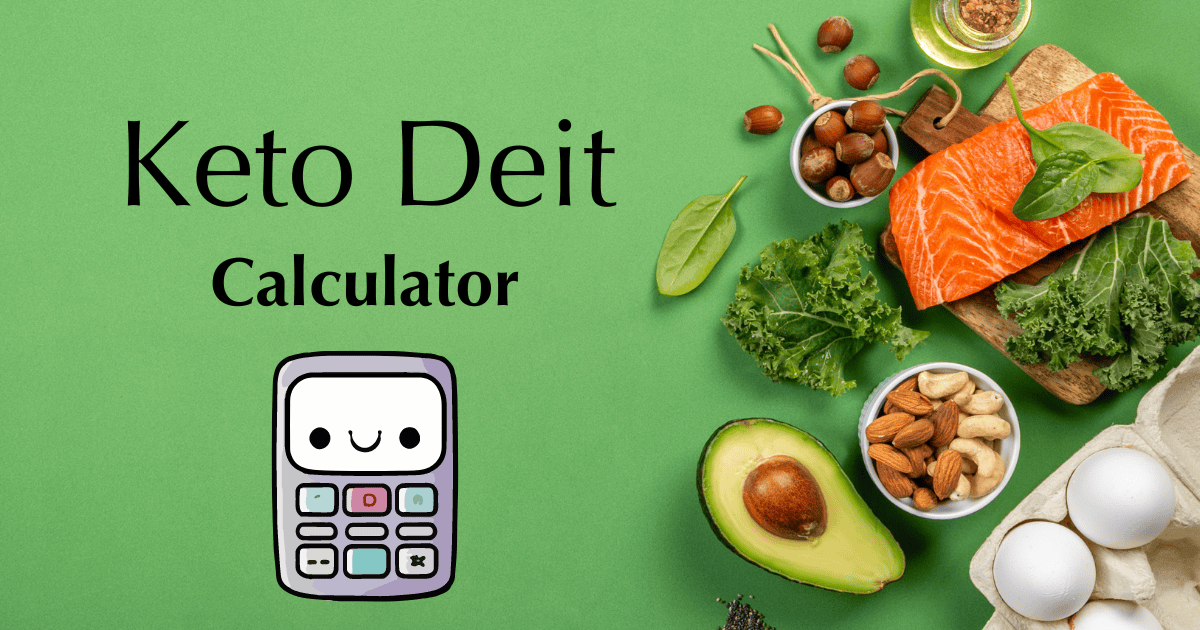Table of Contents
Introduction to Keto Diet Calculator
The ketogenic diet, or keto diet, has gained immense popularity for its potential health benefits and effectiveness in weight loss. One of the crucial aspects of following a keto diet successfully is managing your macronutrient intake.
This is where a Keto Diet Calculator becomes invaluable. Our calculator helps you determine the ideal amount of fats, proteins, and carbohydrates you should consume to achieve and maintain ketosis, tailored to your individual needs.
In this comprehensive guide, we’ll explore everything you need to know about the keto diet, how our calculator works, and tips for maximizing your results.
Understanding the Keto Diet

In this section, we delve into the fundamentals of the ketogenic diet, commonly known as the keto diet. By understanding the core principles and benefits of this dietary approach, you can make informed decisions about whether it’s right for you and how to implement it effectively.
Benefits of the Keto Diet
- Weight Loss: The keto diet can help you lose weight and reduce your risk of diseases. It’s especially effective at reducing visceral fat.
- Improved Mental Focus: Ketones are a great source of fuel for the brain, improving cognitive function and focus.
- Increased Energy: With a steady supply of ketones, you avoid the energy dips associated with carbohydrate intake.
- Reduced Blood Sugar and Insulin Levels: The diet can help manage and prevent diabetes.
- Better Heart Health: By lowering cholesterol levels and improving blood pressure, the keto diet contributes to heart health.
The keto diet is a popular choice for those looking to lose weight and improve their overall health.
By following a high-fat, moderate-protein, and very low-carbohydrate eating plan, you can achieve a metabolic state known as ketosis.
In ketosis, your body efficiently burns fat for energy instead of relying on glucose from carbohydrates. This not only helps in weight loss but also provides several other health benefits.
Why Choose the Keto Diet?
One of the primary reasons people choose the keto diet is for its effectiveness in weight loss. By cutting down on carbs and increasing fat intake, your body turns to fat stores for energy, leading to significant weight loss. Additionally, the keto diet has been shown to reduce visceral fat, which is the harmful fat stored around your organs.
But weight loss isn’t the only advantage. The keto diet is also known to improve mental focus and clarity. Since ketones are a preferred fuel source for the brain, many people experience enhanced cognitive function and sustained mental energy.
Energy levels overall tend to be more stable on the keto diet. Without the highs and lows caused by blood sugar spikes and crashes, you can enjoy a more consistent energy supply throughout the day.
Moreover, the keto diet helps in managing and preventing diabetes by reducing blood sugar and insulin levels. This makes it a viable option for those with insulin resistance or type 2 diabetes.
Finally, heart health can improve on the keto diet. By lowering cholesterol levels and improving blood pressure, you reduce the risk of heart disease and other cardiovascular issues.
How Does the Keto Diet Work?
The keto diet means eating very few carbohydrates, less than 50 grams each day. Carbohydrates are found in foods like bread, pasta, and sweets. When you eat so few carbs, your body runs out of its usual energy source, called glycogen, which comes from carbs.
To keep you going, your body then starts using fat for energy instead. It breaks down the fat into something called ketones, which your body uses for fuel instead of sugar.
Entering ketosis usually takes a few days to a week, during which you may experience symptoms of the “keto flu” – a collection of symptoms including headache, fatigue, and irritability as your body adjusts to this new way of generating energy.
However, once ketosis is achieved, most people find they have increased energy and mental clarity.
Practical Tips for Starting the Keto Diet
- Gradual Reduction of Carbs: Gradually decrease your carbohydrate intake to make the transition smoother.
- Increase Healthy Fats: Incorporate healthy fats like avocados, olive oil, and nuts into your meals.
- Moderate Protein: Keep your protein intake moderate to avoid converting protein to glucose.
- Stay Hydrated: Drink plenty of water and consider electrolyte supplements to avoid dehydration.
- Monitor Your Progress: Use ketone testing strips or a blood ketone meter to ensure you’re in ketosis.
By understanding the fundamentals of the keto diet and following these practical tips, you can successfully achieve and maintain ketosis, reaping all the health benefits that come with it.
What is a Keto Diet Calculator?

Understanding how to use a Keto Diet Calculator is key to successfully following a keto diet. This section will guide you through the basics of what the calculator is and how it works.
What is a Keto Diet Calculator?
A Keto Diet Calculator is a handy tool that helps you find the right balance of fats, proteins, and carbohydrates for your keto diet.
By entering your personal details, it gives you customized recommendations to help you stay in ketosis.
What Information Do You Need?
To get accurate results, you’ll need to provide:
- Age: Your age can affect how fast you burn calories.
- Gender: Men and women need different amounts of calories.
- Weight: Your current weight helps you figure out how many calories you need at rest.
- Height: Your height also affects your calorie needs.
- Activity Level: How active you are, like whether you’re mostly sitting, lightly active, moderately active, very active, or extra active.
- Goals: Whether you want to lose weight, stay the same, or gain muscle.
How Does It Calculate Your Macros?

Once you enter your details, the Keto Diet Calculator tells you how many calories you need each day and how to split them into:
- Fats: 70-75% of your daily calories
- Proteins: 20-25% of your daily calories
- Carbohydrates: 5-10% of your daily calories
For example, if you need 2000 calories a day:
- Fats: 1400-1500 calories (70-75%)
- Proteins: 400-500 calories (20-25%)
- Carbs: 100-200 calories (5-10%)
Example Calculation
Imagine a 30-year-old woman who is moderately active, weighs 150 pounds, and wants to lose weight. The calculator might suggest she needs 1600 calories a day. Her macronutrient breakdown would be:
- Fats: 1120 calories (70%)
- Proteins: 320 calories (20%)
- Carbs: 160 calories (10%)
Key Parts of the Keto Diet
To successfully follow a keto diet, it’s important to understand its main components. The Keto Diet Calculator can help you determine the right balance of these components for your specific needs.
This tool focuses on specific macronutrients and micronutrients that help your body enter and stay in ketosis, a state where it burns fat for fuel instead of carbohydrates.
In the following sections, we will break down these essential elements to help you better understand and implement the keto diet effectively.
Macronutrients
- Fats
- Sources: Avocado, olive oil, butter, fatty meats.
- Role: Main energy source and helps you feel full.
- Proteins
- Sources: Meat, fish, eggs, dairy.
- Role: Helps build and repair muscles.
- Carbohydrates
- Sources: Leafy greens, nuts, seeds.
- Role: Limited to help you stay in ketosis.
Micronutrients
Besides fats, proteins, and carbs, you also need vitamins and minerals:
- Electrolytes: Sodium, potassium, and magnesium are important, especially at the start, to avoid feeling bad (keto flu).
- Vitamins: Eat a variety of healthy foods to get enough vitamins.
Tips for Success on the Keto Diet
Meal Planning
- Plan Your Meals: Make weekly plans to hit your macronutrient goals.
- Prep in Advance: Cook meals ahead of time to avoid eating non-keto foods.
- Include Variety: Eat different keto-friendly foods to keep it interesting.
Monitoring Ketosis
- Ketone Testing: Use strips, breath meters, or blood meters to check if you’re in ketosis.
- Track Your Macros: Use apps to log what you eat and check your macros.
Staying Hydrated
- Drink Water: Aim for at least 8 glasses of Water a day.
- Electrolyte Drinks: These help keep your body balanced and prevent keto flu.
Managing Side Effects
- Keto Flu: Symptoms like headache and tiredness are common at first. Drink more electrolytes to feel better.
- Digestive Issues: Eat more fiber from low-carb veggies and maybe take probiotics.
Long-Term Maintenance
- Gradual Adjustment: Once you reach your goals, slowly add more carbs to find out how much you can eat while staying in ketosis.
- Regular Monitoring: Keep checking your ketone levels and adjust your diet as needed.
Frequently Asked Questions
1. What is the ideal macronutrient ratio for a keto diet?
- Fats: 70-75%
- Proteins: 20-25%
- Carbohydrates: 5-10%
2. Can I exercise on a keto diet?
Yes, you can. You might need to change your macronutrient intake for more energy, especially for hard workouts.
3. What are the signs of ketosis?
- Increased ketone levels (measured with tests)
- Bad breath (smells like acetone)
- Weight loss
- Less hunger
- More energy and focus
4. Is the keto diet safe?
The keto diet is usually safe if done correctly. Check with a doctor before starting, especially if you have health issues.
5. Can I have cheat days on a keto diet?
Cheat days can stop ketosis and make it hard to get back in. If you cheat, it might take a few days to return to ketosis.
6. How do I calculate my keto diet?
To calculate your keto diet, use a **Keto Diet Calculator**. Input your age, gender, weight, height, activity level, and goals. The calculator will then give you the right amounts of fats, proteins, and carbohydrates to eat each day to stay in ketosis.
7. How much should you eat a day on keto?
On a keto diet, you should eat a specific amount of fats, proteins, and carbs each day. A Keto Diet Calculator helps you figure this out based on your personal details. Generally, you will eat about 70-75% of your daily calories from fats, 20-25% from proteins, and 5-10% from carbohydrates.
8. What is a good ratio for keto diet?
A good ratio for a keto diet is:
- Fats: 70-75% of your daily calories
- Proteins: 20-25% of your daily calories
- Carbohydrates: 5-10% of your daily calories
Using a Keto Diet Calculator can help you determine these ratios based on your specific needs.
9. How many kilos can I lose in keto diet?
The amount of weight you can lose on a keto diet varies for each person. Some people lose 1-2 kilos (2-4 pounds) in the first week, mainly from water weight. Over time, with consistent use of a Keto Diet Calculator to maintain proper macronutrient ratios, you can continue to lose weight at a steady pace, which might be around 0.5-1 kilo (1-2 pounds) per week. However, individual results can vary.











